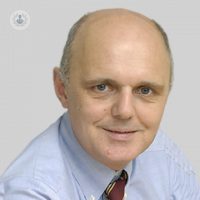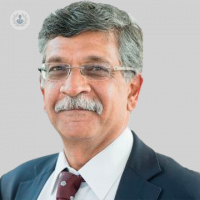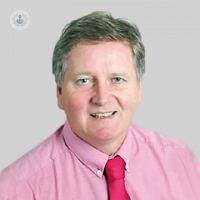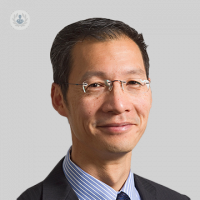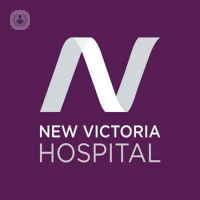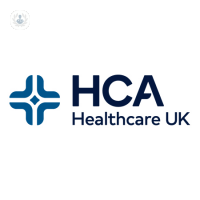What is memory loss?
Memory loss, also known as amnesia, is unusual forgetting. It's a common disorder as people get older. With memory loss, the person cannot remember recent events of the past.
Memory loss can occur for a short period of time and then resolve. This is known as transient memory loss. However, depending on the cause, memory loss may not improve and actually get worse over time. Memory loss can be due to a variety of causes. The most common is Alzheimer’s dementia.

What symptoms does memory loss present?
The symptoms of memory loss that should be noted are:
- Difficulty carrying out daily activities
- Difficulty paying attention
- Mental confusion
- Depression
- Headaches
- Vision problems
- Difficulty understanding language
- Slow movements
Causes of memory loss
A considerable memory deficit can be due to other diseases such as Alzheimer's or senile dementia. Likewise, it can also be a consequence of other disorders, such as depression.
Memory loss can be caused by many factors. It can result from an injury to the brain, which is caused by or is present after:
- Brain tumours
- Oncological treatments such as radiotherapy or chemotherapy
- Serious brain infections
- Hydrocephalus
- Transient ischemic attack (TIA) or stroke
- Concussion or head injury
At other times, memory loss may be related to mental health problems such as depression, bipolar disorder or after a traumatic or stressful experience.
Other causes of memory loss can be:
- Epilepsy
- Consumption of alcohol or other drugs
- Low levels of nutrients or vitamin B1 or B12
- Parkinson's, multiple sclerosis or Huntington's disease
How is memory loss treated?
It is important to establish an accurate diagnosis and to rule out any reversible or treatable cause of memory loss. There are a number of treatments available which delay progression of dementia in certain patients. In addition, patients affected by memory loss need a lot of support from their family and friends to carry out their daily routines, especially if they need to take medication or follow a certain type of diet.
Support may also be needed from a physiotherapist, occupational therapist and speech therapist. There is also increasing evidence that physical activity and fitness improve brain functioning.
11-13-2012 04-19-2023Memory disorder
Dr Tarun Solanki - Internal medicine
Created on: 11-13-2012
Updated on: 04-19-2023
Edited by: Karolyn Judge
What is memory loss?
Memory loss, also known as amnesia, is unusual forgetting. It's a common disorder as people get older. With memory loss, the person cannot remember recent events of the past.
Memory loss can occur for a short period of time and then resolve. This is known as transient memory loss. However, depending on the cause, memory loss may not improve and actually get worse over time. Memory loss can be due to a variety of causes. The most common is Alzheimer’s dementia.

What symptoms does memory loss present?
The symptoms of memory loss that should be noted are:
- Difficulty carrying out daily activities
- Difficulty paying attention
- Mental confusion
- Depression
- Headaches
- Vision problems
- Difficulty understanding language
- Slow movements
Causes of memory loss
A considerable memory deficit can be due to other diseases such as Alzheimer's or senile dementia. Likewise, it can also be a consequence of other disorders, such as depression.
Memory loss can be caused by many factors. It can result from an injury to the brain, which is caused by or is present after:
- Brain tumours
- Oncological treatments such as radiotherapy or chemotherapy
- Serious brain infections
- Hydrocephalus
- Transient ischemic attack (TIA) or stroke
- Concussion or head injury
At other times, memory loss may be related to mental health problems such as depression, bipolar disorder or after a traumatic or stressful experience.
Other causes of memory loss can be:
- Epilepsy
- Consumption of alcohol or other drugs
- Low levels of nutrients or vitamin B1 or B12
- Parkinson's, multiple sclerosis or Huntington's disease
How is memory loss treated?
It is important to establish an accurate diagnosis and to rule out any reversible or treatable cause of memory loss. There are a number of treatments available which delay progression of dementia in certain patients. In addition, patients affected by memory loss need a lot of support from their family and friends to carry out their daily routines, especially if they need to take medication or follow a certain type of diet.
Support may also be needed from a physiotherapist, occupational therapist and speech therapist. There is also increasing evidence that physical activity and fitness improve brain functioning.


Dementia and memory loss: is your forgetfulness age or dementia-related?
By Dr Mashkur Khan
2024-12-13
Memory loss isn't always dementia-related - it can happen naturally due to age or depression. Dr Mashkur Khan explains the main types of memory loss, including dementia. See more


Dementia diagnosis: A guide for patients and families
By Dr Victoria Lukats
2024-12-13
Dementia is a complex syndrome affecting over 940,000 people in the UK. While a dementia diagnosis can feel overwhelming, it’s also the first step towards accessing the treatments, support, and resources needed. Here, Dr Victoria Lukats, leading consultant psychiatrist, provides an expert insight into dementia, discussing its early signs and how the syndrome is diagnosed. See more


How do ‘senior moments’ differ from the signs of dementia?
By Dr Mashkur Khan
2024-12-13
Revered consultant physician Dr Mashkur Khan explains how the symptoms associated with dementia differ from the occasional memory problems which often accompany ageing in this informative article. See more
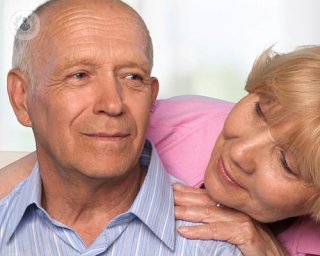

Seeking help for mild memory problems
By Dr Emer MacSweeney
2024-12-08
Dr Emer MacSweeney talks about dementia awareness, new brain scanning techniques, and what you should do if you have worries about your memory. See more
Experts in Memory disorder
-
Professor Peter Garrard
NeurologyExpert in:
- Alzheimer's disease
- Cognitive impairment
- Dementia
- Neurological disorders
- Neurological treatments
- Memory disorder
-
Dr Hadi Manji
NeurologyExpert in:
- Neurological disorders
- Headache
- Dizziness
- Memory disorder
- Parkinson's disease
- Neurological treatments
-
Dr Shane Roche
GeriatricsExpert in:
- Mild cognitive impairment (MCI)
- Stroke
- Parkinson's disease
- Alzheimer's disease
- Memory disorder
- Dementia
-
Professor Dennis Chan
NeurologyExpert in:
- Alzheimer's disease
- Dementia
- Memory disorder
- Movement disorders
- Headache
- Parkinson's disease
-
Dr Tarun Solanki
Internal medicineExpert in:
- Memory disorder
- Medicolegal
- Osteoporosis
- Parkinson's disease
- Geriatric medicine
- Stroke
- See all

New Victoria Hospital
New Victoria Hospital
184 Coombe Lane West, Kingston upon Thames, KT2 7EG
No existe teléfono en el centro.
By using the telephone number provided by TOP DOCTORS, you automatically agree to let us use your phone number for statistical and commercial purposes. For further information, read our Privacy Policy
Top Doctors

The Physicians' Clinic
The Physicians' Clinic
14 Devonshire St, London W1G 7AE
No existe teléfono en el centro.
By using the telephone number provided by TOP DOCTORS, you automatically agree to let us use your phone number for statistical and commercial purposes. For further information, read our Privacy Policy
Top Doctors

London International Patient Services (LIPS)
London International Patient Services (LIPS)
5 Devonshire Place, W1G 6HL
No existe teléfono en el centro.
By using the telephone number provided by TOP DOCTORS, you automatically agree to let us use your phone number for statistical and commercial purposes. For further information, read our Privacy Policy
Top Doctors
-
New Victoria Hospital
184 Coombe Lane West, Kingston upon Thames, KT2 7EG, South LondonExpert in:
- Cardiology
- General Surgery
- Orthopaedic surgery
- Breast augmentation
- Pain management
- Spine
-
The Physicians' Clinic
14 Devonshire St, London W1G 7AE, Central LondonExpert in:
- Cardiology
- Dermatology
- Gastroenterology
- Neurology
- Rheumatology
-
London International Patient Services (LIPS)
5 Devonshire Place, W1G 6HL, W1G Marylebone LondonExpert in:
- Orthopaedic spinal surgery
- Plastic surgery, reconstructive and aesthetics
- Hand and wrist
- Otolaryngology
- Foot and ankle
- Knee
- See all
- Most viewed diseases, medical tests, and treatments
- Peripheral nerve block
- Peripheral neuropathy
- Neuro-ophthalmology
- Migraine
- Autoimmune diseases
- Joint pain
- Nutrition
- Abdominal pain
- Vaginal cytology
- Tremor

